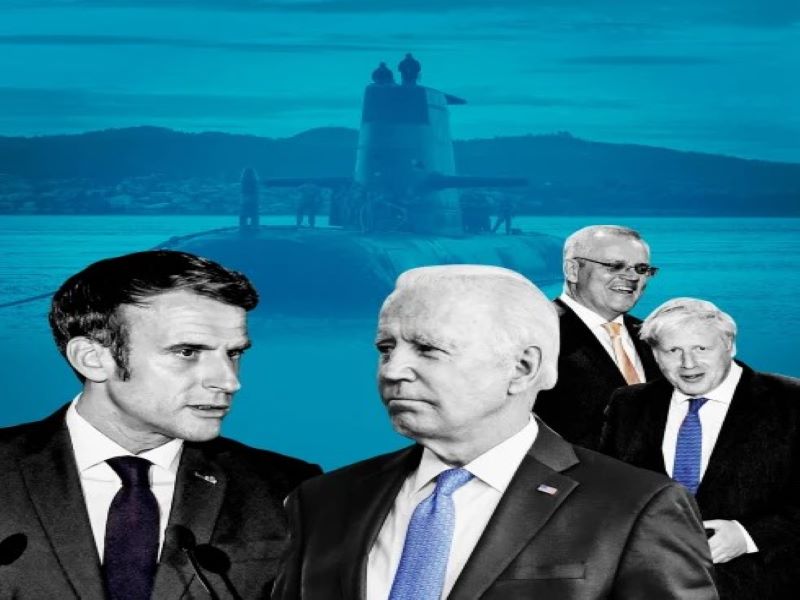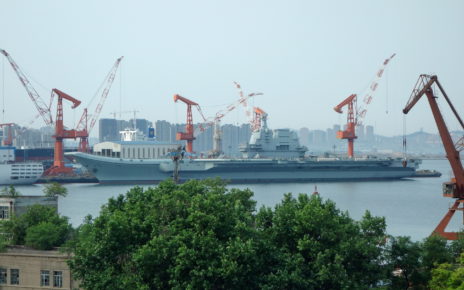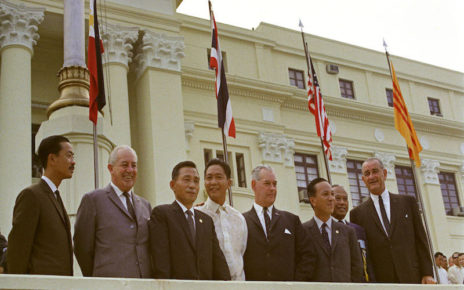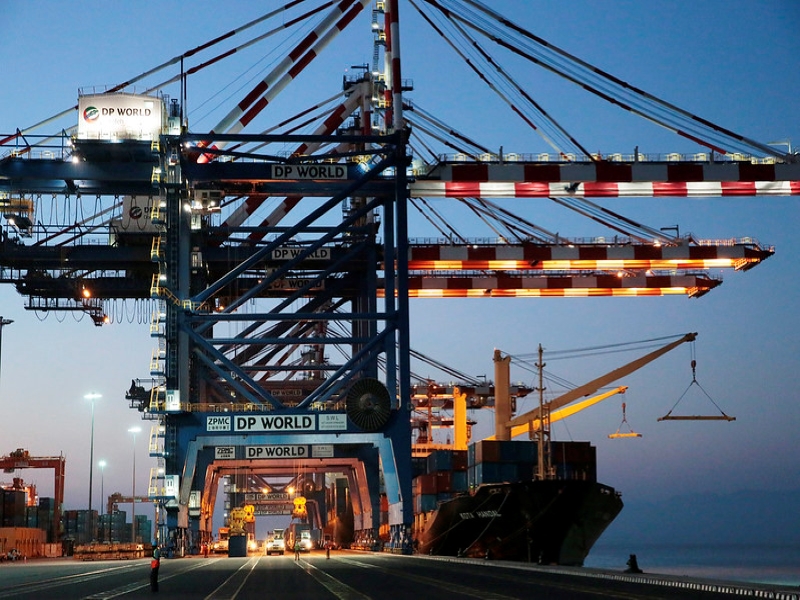During his first visit to NATO headquarters as President of the United States, Joe Biden remarked that the Alliance was “critically important for US interests and of itself.” To undo the strategies and decisions of former President Donald Trump’s “America First” foreign policy, President Biden has, again and again, reasserted the importance and significance of America’s relationship with its transatlantic allies. However, President Biden’s decision to finalize the US pivot to the Indo-Pacific has amplified the types of strains that hinder NATO’s intra-alliance cohesion and unity to extra-regional challenges.
Announced on September 15, 2021, the AUKUS security pact—a trilateral military-to-military partnership between Australia, the United Kingdom, and the US—has gained significant attention from the transatlantic and transpacific theatres. The AUKUS pact represents a counterbalancing strategy to China’s increasingly growing hegemonic character in the Indo-Pacific and, in particular, its belligerent behaviour towards Australia—using economic diplomacy to hurt the Australian economy as a way to punish Australian political leaders for supporting an international investigation into the origins of COVID-19. The pact is a significant partnership because it grants the Royal Australian Navy (RAN) nuclear submarines based on America’s Virginia class or Britain’s Astute-class submarines and establishes more sweeping technological interoperability between the three member states.
Although these security and defence pacts are not new in international relations, the submarine deal impacts the Indo-Pacific community, Sino-US strategic competition, and regional stability. Unlike diesel-electric submarines, like the RAN’s Barracuda class that can be dispatched to patrol Australia’s waterways, borders, and its exclusive economic zone (EEZ) for up to two weeks before needing to return to a RAN naval base, nuclear submarines offer indefinite deployment for as long as the crew can be fed. Moreover, it permits the RAN to become more offensive in its deterrence capabilities by potentially launching longer-range missiles capable of targeting China’s mainland from within the parameters of the Chinese Nine-Dash Line.
Despite AUKUS receiving the approval of some Indo-Pacific states, like Vietnam, India, Japan and the Philippines, for demonstrating the commitment of its members to regional security, the trilateral pact is not without criticism. For instance, the inclusion of nuclear technologies to a non-nuclear power and a signatory of the Nuclear Non-Proliferation Treaty raises concerns about increased nuclear proliferation in the region.
The security pact also received condemnation from America’s longest-standing and integral NATO ally—France. It is important to stress that the AUKUS pact was secretly negotiated between the three countries at a time when Australia contracted France back in 2014 and 2016 to build 12 diesel-powered submarines. For France, the contract was a key piece of its Indo-Pacific strategy structured around a Paris-Delhi-Canberra axis that positioned France as a credible extra-regional power and partner, seeing as France has multiple overseas territories and a vast Indo-Pacific EEZ. Making matters worse was the AUKUS announcement arriving on the heels of the European Union’s formal proclamation of its Indo-Pacific strategy.
Although the regional challenges posed by AUKUS are significant for the Indo-Pacific’s stability and China’s deepening power projection and competition with the US, the trilateral pact has more implications for NATO’s extra-regional posture and intra-alliance cohesion and unity on an Indo-Pacific strategy.
For one, the AUKUS pact showcases a lack of interdependence between NATO’s major powers. The decision of the US and UK to secretly undermine France’s Indo-Pacific engagement strategy refute President Biden’s call for allies to balance against China. Rather than supporting France’s submarine contract as a steadfast commitment from a NATO member, a strategic advantage, the AUKUS pact illustrates the constraining nature of America’s Indo-Pacific strategy—one that must exhibit America leading from the front, being inseparable from any or all regional security and defence policies.
The AUKUS pact also can create a fractional environment inside NATO as to how the Alliance develops its engagement strategy for the Indo-Pacific. For instance, many in the Biden administration and Washington regard the European response to China as too cautious and soft. Meanwhile, certain experts from the EU, Germany, and France are reluctant to arbitrarily and systemically counterbalance China for purely hegemonic reasons. Instead, these countries prefer to engage China through a multifaceted approach that balances the economic and security concerns arriving from China’s emergence as a regional and global great power.
These varying perspectives put pressure on Alliance members to choose between a Eurosphere and Anglosphere outlook within NATO. Furthermore, France could retaliate against AUKUS and its NATO members by blocking consensus on a more proactive NATO engagement strategy for the Indo-Pacific during future NATO Summits. France could also point to the AUKUS debacle as further proof of the continuation of Trump’s “America First” strategic outlook and a post-BREXIT Britain that seeks to further decouple from the EU through its “Global Britain” foreign policy. At a time when Russia is becoming more assertive with its military buildup on its eastern flank and bolstering support for Belarusian dictator Alexander Lukashenko, along with China’s ever-growing desire to widen its monetary footprint in Europe, the Alliance cannot be divided in its strategic outlook for extra-regional and out-of-area operations in the Indo-Pacific.
The AUKUS deal may also reinforce France’s emphasis for greater EU strategic autonomy and sovereignty in NATO. Although greater strategic autonomy would benefit NATO and its European members, calls for such strategic measures in a period of intra-alliance friction will not contribute to a stronger or more capable European defence system and deterrence. Instead, such measures would be more dramatic and arrive from political candidates that seek to use NATO’s disunity as a way to gain bureaucratic and political appointments. In France, far-right candidates are calling for a more de Gaulle-like attitude for diplomatic strategies that maneuvers sweeping state autonomy in dealing with revisionist and antagonistic powers like Russia and China. It can also be used by Alliance members in regional territorial and political disputes—soon after the AUKUS proclamation, France was able to close a submarine deal with Greece who is in the middle of a territorial dispute with Turkey—and who are two fellow NATO members.
For NATO to avoid such occurrences and incentivize greater cohesion and unity for organizing a collective Indo-Pacific engagement strategy, the Alliance needs to establish an Indo-Pacific Council. Through this institutional instrument, NATO and its members—ranging from its major powers to small powers—can communicate their national interests and perceived participation in developing and enhancing NATO’s extra-regional tilt and out-of-area power projection. The council would strengthen the Alliance’s momentum in advocating and lobbying for greater NATO representation in the Indo-Pacific and be a bulwark against unilateral and minilateral strategies that exclude fellow allies from vital security and defence issues.
Photo: US President Biden, French President Macron, UK Prime Minister Boris Johnson and Australian Prime Minister Scott Morrison against a backdrop of a submarine (2021), By Financial Times. Public Domain.
Disclaimer: Any views or opinions expressed in articles are solely those of the authors and do not necessarily represent the views of the NATO Association of Canada.




